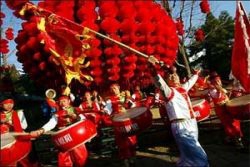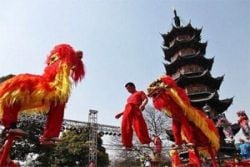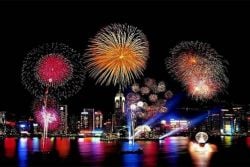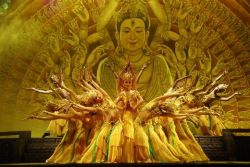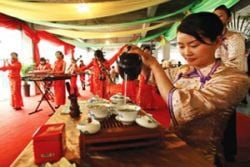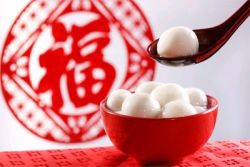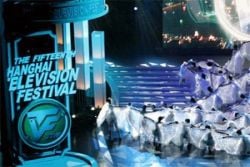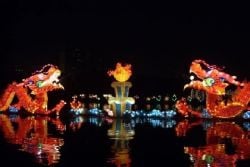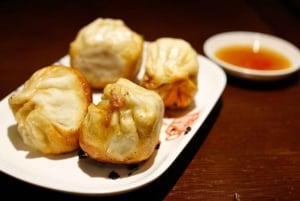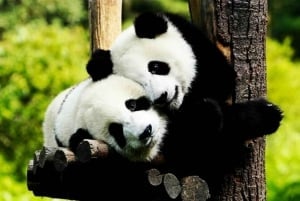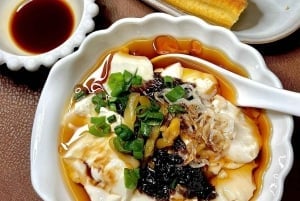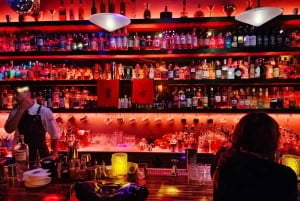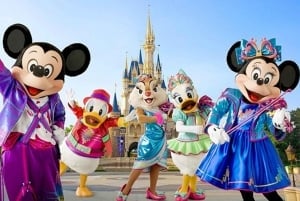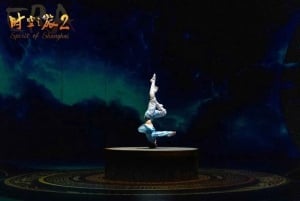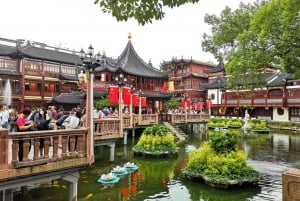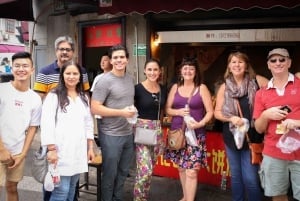Festival Calendar of Shanghai
It is surprising that, although Shanghai is a modern, highly developed city, much of Shanghai’s population continues to follow a traditional way of life. Many age-old customs continue to be observed, and this contrast of old and new is part of the fascination of Shanghai. There are many festivals and exhibitions that celebrate Shanghai’s ancient traditions, and they continue to have a profound influence on people's daily life in this amazing city.In addition to the traditional Chinese festivals, Shanghai also celebrates the following; reflecting both traditional and modern aspects of daily life in modern China.





Longhua Temple Fair, held in Longhua old town, has a long history of more than 300 years. Legend tells that the laughing Buddha was born under the Longhua tree, preached Buddhism and saved people from secular sufferings. This later developed into a temple fair.
Today, the fair is the largest folk gathering in eastern China. It is a colorful fair with stalls, folk art, jugglers and stilt walkers, and is made all the more colorful by the blossoming of the peach flowers prevalent in the area at that time. Stalls surround the temple and thousands and thousands of people fight their way to the booths selling every kind of traditional Chinese food, crafts and almost everything else.
The Shanghai International Tea Culture Festival is held annually in late April lasting around one week, promoting all things tea, including a wide variety of teas to taste, competitions and exhibitions, and appealing to visitor and specialist alike. Tea is an integral part of Chinese culture, and this is a great place to explore its history and the traditions that go with it.
The festival started when the revolutionary history Exhibition Hall in Zhabei District opened the Songyuan teahouse. China's modern tea master, Wu Juenong (1897-1989) drew on historical documents and traditions to promote the national beverage, and over time the meetings and seminars held at the Songyuan teahouse inspired this tea culture festival which has become a major tradition in its own right.
The Nanhui district (pronounced nan-hwey) District has organized the annual Peach Blossom Festival since 1991, timed for when the peach blossom is at its best. The Festival includes Chinese folk culture presentations and displays, which have proved very popular with visitors. The heart of the Festival is in Huinan town in Nanhui district, at the Chengbei Folk Peach Orchard, which is magnificent at this time of the year.
The village provides picturesque scenery with a mixture of traditional formal Chinese gardens and less formal Chinese rural scenery. Against a backdrop of dancing leaves and luxuriant blossoms the village is full of surprises, including delicious local specialties, delicate craft work, beautiful scenery and, of course, the ancient peach trees in full bloom, adding to the charm of Nanhui itself.
The Festival includes the International TV & Film Market, which has proved to be more market-oriented than its predecessors. In addition to the exhibiting companies present, the market invited potential buyers to attend in order to establish their own trade platforms for the first time.
Mid-Autumn Festival, also known as the Moon Festival orChinese Lantern Festival, is a popular lunar harvest festival celebrated by Chinese people. The celebration became popular during the early Tang Dynasty. The festival is held on the 15th day of the eighth month in the Chinese calendar, which is in September or early October in the Gregorian calendar, close to the autumnal equinox. In 2008 it was made a Chinese public holiday. Traditionally, family and friends gather in the evening to celebrate, eat festive fruits and mooncakes. After dinner, a visit to a public space, such as a park or shoreline, may follow for, literally, 'appreciating the moon'. It also provides a good excuse for a barbeque gathering. Importantly, lanterns and candles are lit. Traditional practices are being given a modern twist, most often for marketing purposes. For example, the traditional egg yolk, lotus seed paste & pastry mooncake will be offered with alternative fillings, such as green tea or chocolate.
October 1st is Chinese National Day. National Day, celebrating the foundation of the People's Republic of China.There will be a variety of grand ceremonies and activities in China during National Day, such as a great ceremonial review of troops in Beijing and lighting fireworks in many cities the evening.


